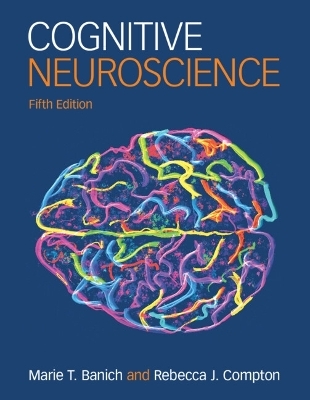
Cognitive Neuroscience
Cambridge University Press (Verlag)
978-1-108-83114-7 (ISBN)
Now in its fifth edition, this accessible and comprehensive text highlights the most important theoretical, conceptual and methodological issues in cognitive neuroscience. Written by two experienced researchers who excel at teaching, the consistent narrative ensures that concepts are linked across chapters, and the careful selection of topics enables readers to grasp the big picture without getting distracted by details. Clinical applications such as developmental disorders, brain injuries and dementias are highlighted. In addition, the analogies and examples, opening case studies, and 'In Focus' boxes both engage and demonstrate the relevance of the material to real-world concerns. Revised for even greater clarity, the fifth edition features new and updated artwork, 'Key Questions' to review concepts, and 'Thought Questions' which develop the critical thinking skills needed to evaluate future developments in this fast-moving field. An expanded set of online resources is also available.
Marie T. Banich uses brain imaging techniques to understand the neural systems that enable us to direct actions and thoughts in a goal-oriented manner, often referred to as executive function. Her research findings have been published in leading journals, including Science. Among her professional experiences, Prof. Banich has been a member of the MacArthur Foundation on Adolescent Development and Juvenile Justice, a Fulbright Senior Scholar in Verona, Italy, and a recipient of a James Cattell sabbatical award. Currently she serves as the co-Principal Investigator for Colorado site of the Adolescent Brain Cognitive Development study, an unprecedented ten-year longitudinal study that uses neuroimaging to provide an unrivaled window on development of the adolescent brain and its influences on cognitive and emotional development. Rebecca J. Compton is Professor of Psychology and director of the Neuroscience program at Haverford College, a selective liberal arts college where she has taught since 1999. Her research uses EEG and eye-tracking methods to explore the neural basis of self-regulation, including executive functions, attention, mind-wandering, and emotion regulation. Professor Compton has received grants from the NSF and NIH for mentored research with undergraduates and is the recipient of the Lindback Award for Distinguished Teaching. She is a participating member in the PURSUE group, a collaborative group of faculty developing open-source teaching and lab materials for undergraduate courses in cognitive psychophysiology.
1. Introduction to the nervous system; 2. Historical perspectives; 3. Methods; 4. Motor control; 5. Sensation and perception; 6. Object recognition; 7. Spatial cognition; 8. Language; 9. Memory and learning; 10. Attention; 11. Executive function and higher-order thinking; 12. Emotion; 13. Social cognition; 14. Psychopathology; 15. Brain development and plasticity; 16. Generalized cognitive disorders; 17. Cognitive neuroscience and society.
| Erscheinungsdatum | 20.10.2023 |
|---|---|
| Zusatzinfo | Worked examples or Exercises |
| Verlagsort | Cambridge |
| Sprache | englisch |
| Maße | 223 x 283 mm |
| Gewicht | 2020 g |
| Themenwelt | Geisteswissenschaften ► Psychologie ► Allgemeine Psychologie |
| Geisteswissenschaften ► Psychologie ► Verhaltenstherapie | |
| Naturwissenschaften ► Biologie ► Humanbiologie | |
| Naturwissenschaften ► Biologie ► Zoologie | |
| ISBN-10 | 1-108-83114-1 / 1108831141 |
| ISBN-13 | 978-1-108-83114-7 / 9781108831147 |
| Zustand | Neuware |
| Haben Sie eine Frage zum Produkt? |
aus dem Bereich


